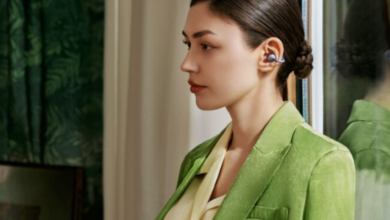The Digital Evolution of Music Creation

The way music is created has undergone a dramatic transformation in recent years. While instruments, voices, and creativity remain at the heart of music, modern technology is now playing a leading role in how artists write, record, and produce songs. This digital evolution is empowering musicians with tools that were unimaginable just a few decades ago.
Creating Music in the Digital Age
In the past, music production required large studios, specialized equipment, and significant financial investment. Today, all that has changed. With access to digital workstations and software, artists can compose, edit, and mix entire albums from a laptop. These tools are easy to use, flexible, and affordable, making music production more accessible than ever.
This shift means anyone with talent and dedication can bring their musical ideas to life, regardless of their background or location. It’s a powerful step toward creative freedom and independence in the music industry.
Artificial Intelligence: A New Creative Partner
One of the most exciting developments in recent years is the integration of artificial intelligence in music creation. AI can now assist with songwriting, chord progressions, beat-making, and even full compositions. This innovation, known as AI music, offers musicians a new way to experiment and generate fresh ideas.
Rather than replacing artists, AI acts as a partner—offering inspiration, saving time, and helping overcome creative blocks. It’s especially useful for those looking to explore unfamiliar styles or quickly test different musical directions.
See also: Translation Services for US Startups Going Global
Expanding Sound Possibilities
Digital technology has also introduced a wide range of virtual instruments and sound libraries. From classical ensembles to electronic effects, musicians can now access thousands of sounds without ever entering a studio or hiring additional performers. These tools encourage experimentation and open the door to limitless sonic possibilities.
Artists can blend genres, sample rare instruments, or create entirely new soundscapes—pushing the boundaries of what music can be.
Collaborating Across Borders
Modern musicians are no longer limited by geography. Technology enables real-time collaboration between artists in different cities or even continents. With online tools, musicians can co-write, record, and produce music together, regardless of where they are in the world.
This global connection brings together diverse influences and cultures, resulting in innovative, cross-genre music that speaks to a wider audience.
Looking Ahead: The Future of Music Creation
The future of music is more interactive and immersive. Technologies like virtual reality and spatial audio are beginning to reshape not just how music is created, but also how it is experienced. Artists are starting to design music that can be explored in 3D environments, allowing fans to engage with songs in new and exciting ways.
As these technologies continue to grow, they will offer musicians even more creative freedom—and listeners a richer, more personal connection to the music.
Final Thoughts
Technology is not replacing the heart of music—it’s expanding it. Musicians today have more tools, more access, and more opportunities to express themselves than ever before. From AI music to global collaboration and virtual performances, the future of music creation is bright, diverse, and full of potential.
Embracing these innovations means embracing the next chapter in music’s incredible journey.




